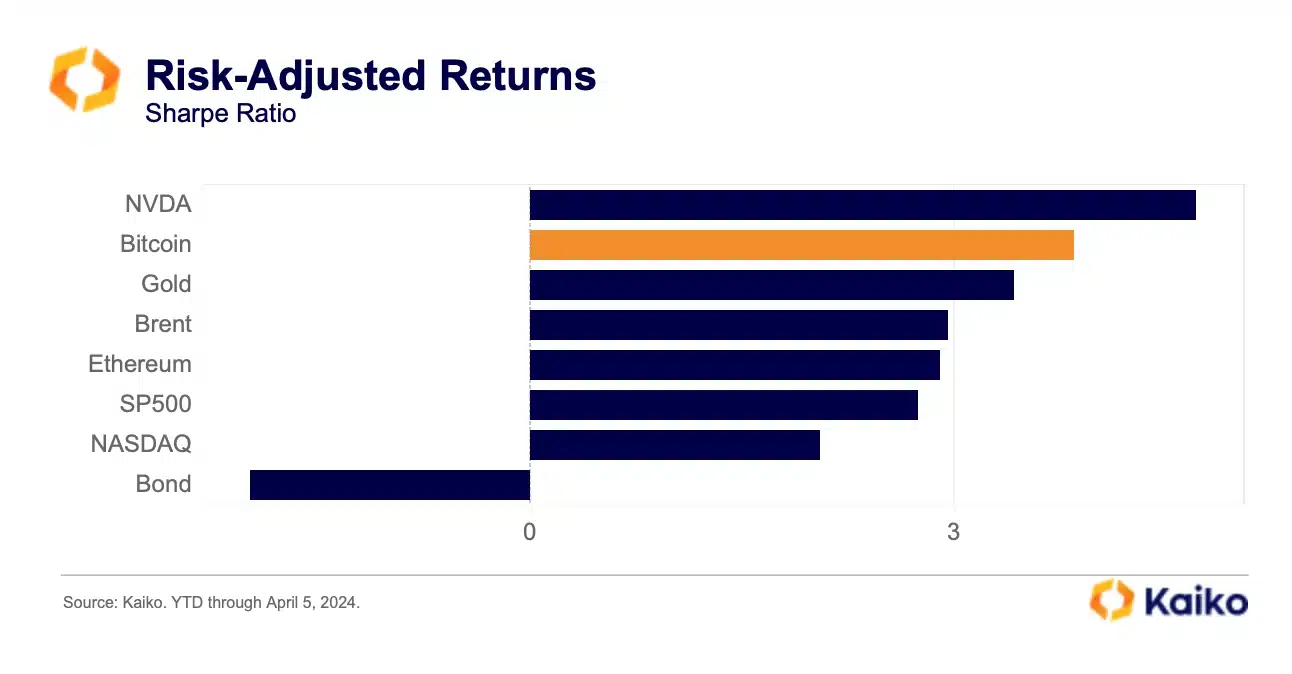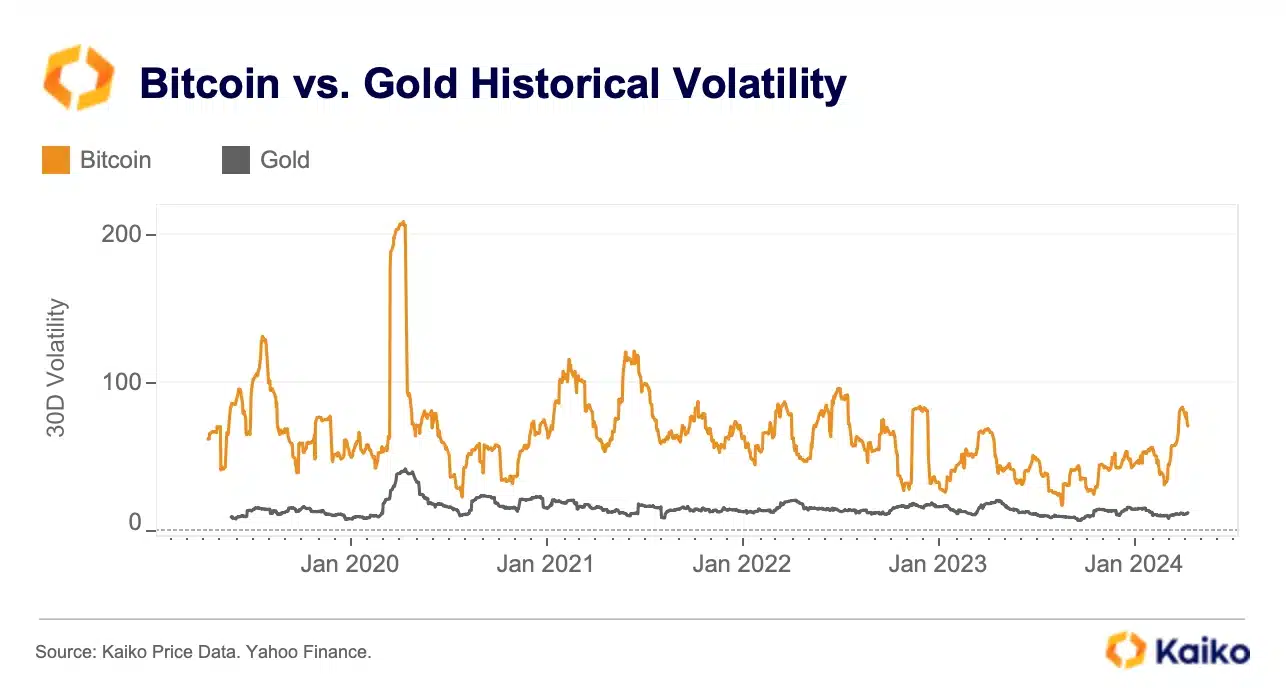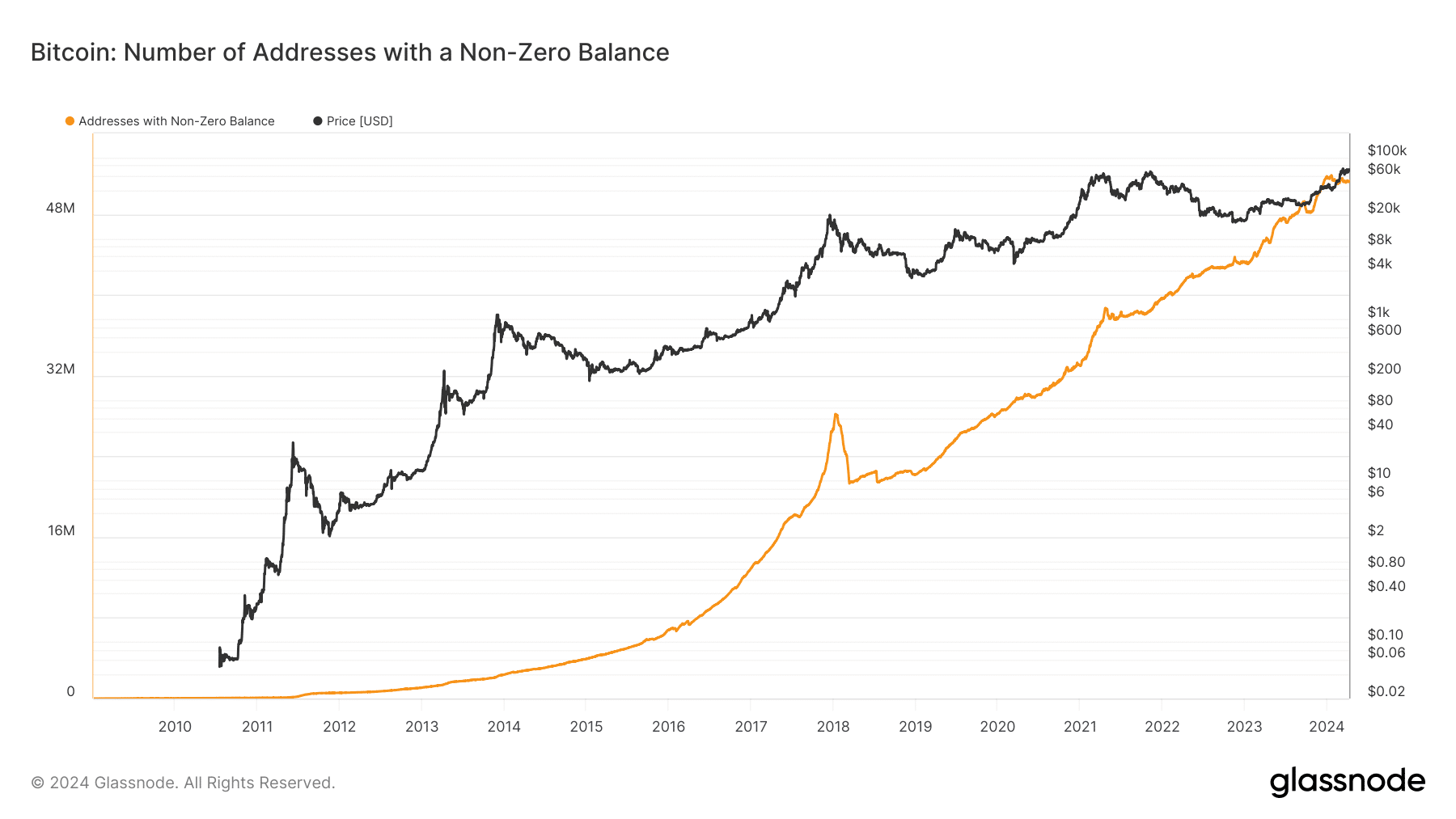
- Bitcoin’s Sharpe Ratio was larger than Gold’s and that of different key fairness and commodity markets
- Bitcoin’s 30-day realized volatility within the first week of April was the best since late 2022
World’s largest cryptocurrency Bitcoin [BTC] outperformed mainstream monetary devices of the market in risk-adjusted returns, all whereas sustaining its typical “high-volatility” traits.
The most effective funding possibility at present?
In response to crypto-market information supplier Kaiko, Bitcoin’s Sharpe Ratio was larger than Gold’s and that of different key fairness and commodity markets in early April.
The Sharpe ratio is a broadly used metric in finance, measuring the risk-adjusted returns on a monetary instrument. Put merely, it compares the efficiency of the asset relative to its volatility – Each draw back and upside.
Sometimes, a Sharpe ratio of 1 or larger is taken into account a superb risk-adjusted return fee. Within the aforementioned graph, Bitcoin’s Sharpe ratio is round 4.
Excessive volatility, however larger returns
Right here, it’s value noting that Bitcoin’s 30-day realized volatility within the first week of April was its highest since late 2022. Furthermore, it exceeded volatility of belongings like Gold considerably. This prompt that regardless of the wild swings in costs, Bitcoin emerged as a gorgeous funding possibility.
Bitcoin has bounced 60% for the reason that starting of 2024, and greater than 4x from the lows of the 2022 bear market. On the time of writing, it was buying and selling round its excessive $67k ranges, with a number of analyses predicting a robust bullish surge within the months to return.
Is your portfolio inexperienced? Take a look at the BTC Revenue Calculator
The next risk-adjusted return bodes effectively for the long run adoption of the world’s largest cryptocurrency. Actually, the inklings of this are already noticeable too.
Lastly, based on AMBCrypto’s evaluation of Glassnode’s information, Bitcoin wallets with non-zero balances have grown sharply lately, implying confidence within the asset’s long-term potential.


